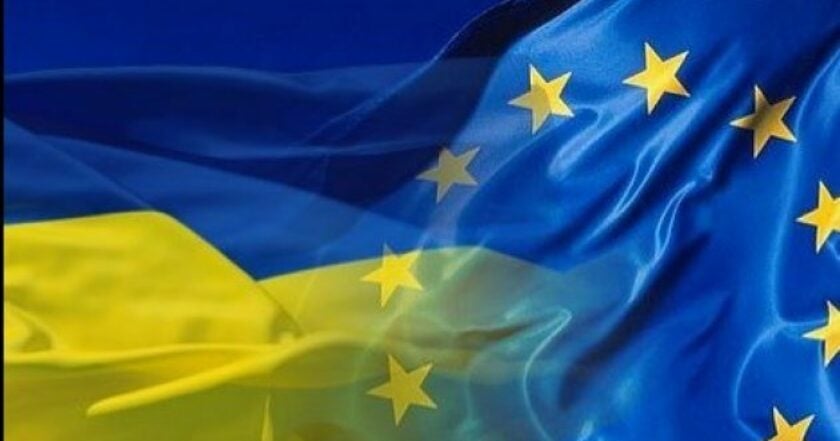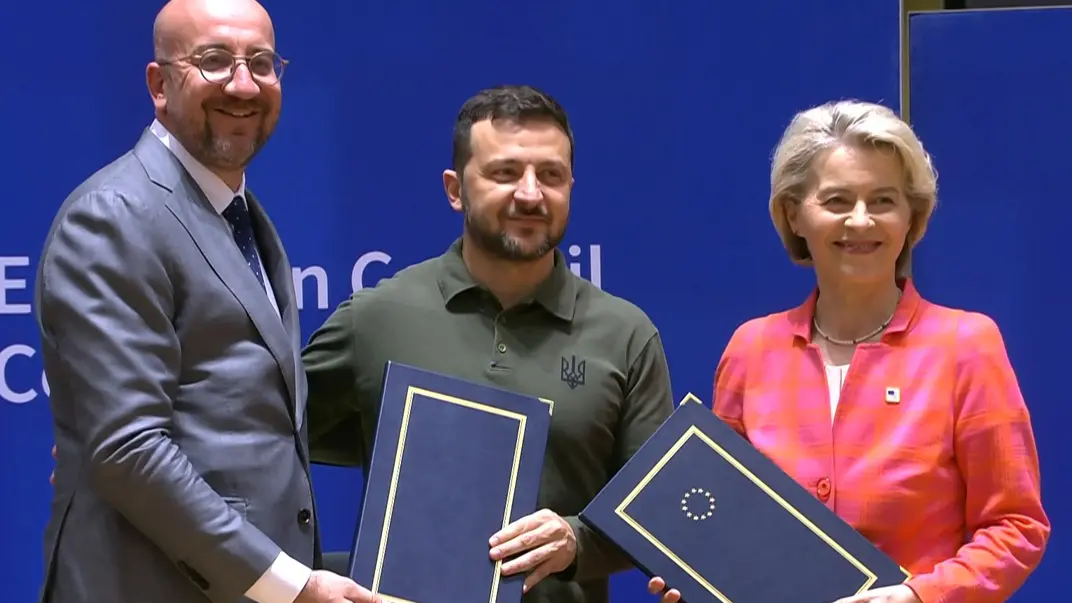Ukraine signs security agreements with EU, Estonia, and Lithuania

During the Summit of EU leaders, Ukraine signed an agreement on security guarantees with the European Union, Estonia, and Lithuania.
The Guardian reports this.
On Thursday, June 27, President Volodymyr Zelensky signed an agreement on security guarantees with Ursula von der Leyen, head of the European Commission, and Charles Michel, president of the European Council.

Volodymyr Zelensky, President of the European Commission Ursula von der Leyen, and President of the European Council Charles Michel after signing the security agreement. Photo: Screenshot
The agreement guarantees Kyiv's continued supply of weapons, training, and other security assistance for years to come.
The previous text of the agreement with the EU contained two main sections on security guarantees, each of which has nine points, according to "Suspilne":
- The first chapter deals with long-term defense assistance.
- The second is about "the future of Ukraine and its citizens in the European Union", demining and reconstruction, strengthening of anti-Russian sanctions, etc.
In addition, the document provides 50 billion euros in support for Ukraine under the Ukraine Facility program and urgent consultations during the day in case of possible future aggression against Ukraine.
Ukraine also signed a security agreement with Lithuania and Estonia.
For their part, the agreement was signed by the President of Lithuania, Gitanas Nauseda, and the Prime Minister of Estonia, Kaja Kallas.
Earlier, the President of Ukraine, Volodymyr Zelensky, announced the signing of these agreements, noting:
"The agreement with the EU will for the first time establish the commitment of all 27 member states to provide Ukraine with broad support despite any internal institutional changes."
Back in May, the Reuters agency disclosed the content of the security agreement between Ukraine and the EU. Thus, in the event of a new aggression, within the first 24 hours, the European Union will be obliged to hold consultations on Ukraine's needs and "quickly determine the next steps."
In addition, the agreement provides for 9 forms of support for Ukraine, including the supply of weapons, training of soldiers, cooperation in the defense industry, assistance in demining, etc.
The document also emphasizes that these obligations will be valid "as long as Ukraine continues its European path." This agreement can be reviewed again in 10 years.
For reference:
On July 12, 2023, on the sidelines of the NATO summit in Vilnius, the leaders of the G7 countries agreed on a Joint Declaration on support for Ukraine. The document discussed, in particular, the work on specific bilateral long-term obligations and agreements in the field of security.
More than 20 countries joined this initiative. Great Britain became the first country to sign a final agreement.
To date, Ukraine has concluded agreements on security guarantees with 16 European states and the United States. Partner countries include Great Britain, Norway, Germany, France, Denmark, Canada, Italy, the Netherlands, Finland, Latvia, Spain, Belgium, Portugal, Sweden and Iceland.
Security agreements with these countries provide for a wide range of support measures for Ukraine, including military and economic aid and political support.
In addition to the general provisions, each of the partner countries also provided Ukraine with individual obligations that correspond to its capabilities and potential.
It should be noted that the President of Ukraine, Volodymyr Zelensky, arrived in Lviv on Thursday, June 27. His visit was not previously announced. The head of state honored the memory of Ukraine's fallen defenders.
Subsequently, it was reported that Ukraine's President, Volodymyr Zelensky, arrived in Brussels to participate in a meeting of the European Council and sign three security agreements























































